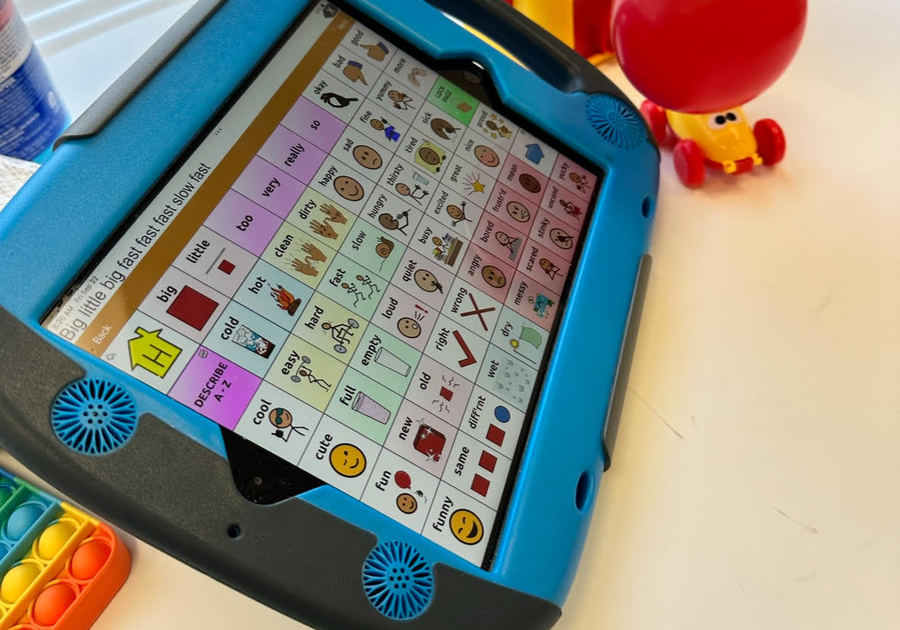April is Autism Acceptance Month, and one of my missions in this community is to raise awareness of neurodiversity affirming care.
What does Neurodiversity Affirming care include?
- Viewing individuals from a strengths-based lens (versus a deficit).
- Valuing connection over compliance.
- Respecting bodily autonomy.
- Focusing on relationship-centered care.
- Presuming competence.
- Changing the environment to support the child, versus changing the individual to fit the environment.
- Honoring all types of communication (E.g., speaking, AAC, gesture).
- Understanding and accommodating individual sensory needs.
- Assisting in developing self-advocacy and problem-solving skills.
- Validating children’s feelings, helping them recognize their triggers, and assisting in identifying calming strategies.
- Recognizing the need for processing time and safe spaces.
- Encouraging safe self-regulation skills, including stimming.
- Honor special interests and different ways of playing.
Why is it so important?
Traditional therapeutic approaches to working with autistic, neurodivergent individuals have focused on encouraging individuals to masking, or hiding stimming behaviors, forcing eye contact, and mimicking neurotypical styles of communication.
However, emerging evidence and information shared by older autistic individuals suggests that these practices can lead to shame, anxiety, depression, and reduced self-worth.
We want autistic individuals to feel supported and safe while working on new skills. If they don’t feel safe, supported, and regulated, it can be very difficult to acquire new skills or even to maintain current skills.
Presuming competence means that we view everyone as having the capacity to think, learn and understand the world. If we don’t presume they can learn/do something, then we usually don’t give them the opportunity to learn/do something, then they never learn or do that thing! One of the biggest facets of presuming competence is providing access to AAC (Augmentative and alternative communication) to non-speaking individuals. If we don’t give non-speaking individuals access to a tool to communicate, how will we ever know what they have to say?
Contrary to the stigmatized belief that autistic individuals aren’t social and don’t want to be around people, autistic people yearn for and need relationships. As communication partners, we need to meet them where they’re at, try to understand how they communicate and do our part to help them create and maintain positive relationships.
How can I help?
Take the time to listen to and understand autistic individuals. Even if they are non-speaking, “listen,” to their body language.
Educate yourself, then advocate for autistic individuals by educating others.
Here are some books that can be informative and perspective-changing:
A Day With No Words by Tiffany Hammond
Space to Grow by Emily Di Piero
Ido in Autismland by Ido Kedar
If you’re interested in neurodiversity affirming speech and language therapy, at Communication Blooms, please reach out. We are here to support your child’s communication growth and to empower you with strategies to support them at home.
You can email me at mackenzie@communicationblooms.org
Please visit our website for more information www.communicationblooms.org
To continue to learn more and hear practice updates, you can subscribe to our e-mail list here.



